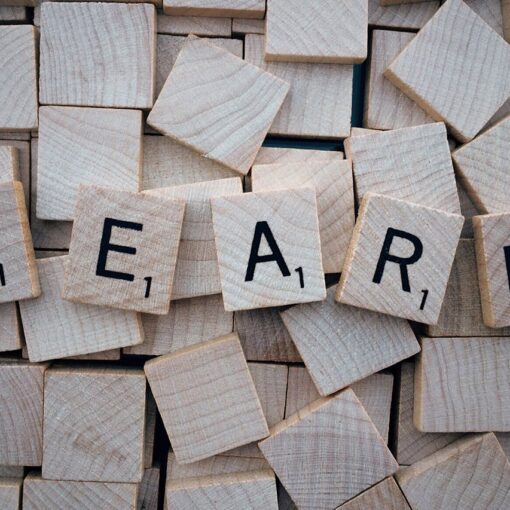Enhancing critical listening skills is crucial in today’s fast-paced world. It enables individuals to distinguish between facts and opinions, making them better communicators and decision-makers.
Understanding how to improve these skills can significantly boost professional and personal relationships.
Critical listening involves more than just hearing words; it’s about evaluating information, spotting biases, and empathizing with the speaker.
For instance, Indeed suggests maintaining eye contact and minimizing distractions to provide your undivided attention during conversations.
Improving this skill set can benefit one’s career immensely. Managers who practice active listening can create a more positive communication climate.
Incorporating techniques such as empathy, as discussed in Positive Psychology, makes it easier to understand colleagues or clients. This, in turn, leads to better problem-solving and teamwork.
Key Takeaways
- Critical listening helps in distinguishing facts from opinions.
- Active listening techniques foster better communication and empathy.
- Improving these skills can enhance professional and personal relationships.
The Importance of Listening in Communication
Listening is essential in communication as it fosters trust, helps build relationships, and ensures messages are understood accurately. Effective listening can improve interactions in personal, educational, and business settings.
Building Relationships Through Listening
Listening is vital in building and maintaining relationships. When people listen carefully, they show empathy and build trust.
Good listening skills also involve recognizing nonverbal communication cues like body language and facial expressions. This helps in understanding the speaker’s emotions better.
Trust and empathy are the foundations of strong relationships, whether with friends, family, or colleagues. Effective communication leads to deeper connections and mutual respect.
By actively listening, individuals feel valued and heard, which in turn strengthens the bond between them.
Listening in the Business Environment
In the business environment, listening skills are critical for effective communication.
Employees who listen well understand instructions better and can provide valuable feedback. This skill helps in problem-solving and decision-making.
Nonverbal communication is also important as it conveys openness and attentiveness during meetings or negotiations.
Sales professionals benefit greatly by attentively listening to clients, leading to better customer satisfaction and increased sales.
In an organization, good listening can enhance teamwork and boost morale.
Misunderstandings and conflicts are minimized when everyone listens and communicates effectively, leading to a more productive workplace.
Active Listening in Education and Personal Development
Active listening is crucial in education and personal development.
Students who practice listening skills perform better academically because they understand lessons and instructions more clearly.
Teachers who are good listeners can identify and address students’ needs effectively.
In personal development, listening helps in self-reflection and growth. It enables individuals to understand feedback and areas for improvement.
Listening is not just about hearing words; it involves interpreting and responding thoughtfully.
Active listening skills are essential for personal growth, improving relationships, and achieving career goals. By honing these skills, individuals can enhance their overall communication abilities.
Components of Active Listening
Active listening involves several key components that work together to ensure effective communication. These components include paying attention to both verbal and nonverbal cues, showing empathy without judgment, and clarifying and understanding messages.
Verbal and Nonverbal Cues
Active listeners pay close attention to verbal cues like tone, pitch, and pace of speech. These cues often provide deeper insight into the speaker’s emotions and intent.
Nonverbal cues, such as eye contact and body language, are equally important.
Facial expressions can reveal a lot about a person’s feelings and thoughts.
Using both verbal and nonverbal cues helps in understanding the full message being communicated.
Body language, such as nodding, leaning in, and maintaining eye contact, shows the speaker that their message is being received and valued.
The Role of Empathy and No Judgment in Listening
Empathy is crucial for active listening. An empathetic listener makes an effort to understand and share the feelings of the speaker.
This involves not just hearing the words, but also feeling what the other person is experiencing.
Empathy helps in validating the speaker’s emotions and makes them feel understood.
It’s essential to listen without forming judgments.
Avoiding judgment means not interrupting or offering solutions too quickly. This creates a safe space for the speaker to express themselves freely.
Understanding and Clarifying Messages
Clarifying and understanding messages is a vital component of active listening.
This involves asking questions and paraphrasing what the speaker has said to ensure understanding.
By asking open-ended questions, the listener can gather more information and insight.
Paraphrasing and reflecting back what has been said helps in confirming that the listener has understood the message correctly.
This practice not only shows attentiveness but also helps in clearing up any misunderstandings.
Through these techniques, active listeners can fully grasp the essence of the communication.
Training to Improve This Skill Set for Someone’s Career
Methods such as practicing mindfulness, using strategies to enhance listening, and handling distractions can greatly improve critical listening skills for career advancement.
Strategies to Enhance Listening Abilities
Practicing specific techniques can significantly enhance critical listening skills.
For instance, active listening involves fully concentrating on the speaker, making eye contact, and nodding to show understanding.
Employers often recommend employees attend workshops or communication courses.
Using tools like role-playing and group discussions can improve these abilities.
Technology in the form of virtual or augmented reality (VR/AR) training can offer immersive experiences where individuals practice listening in various scenarios.
Listening with the Intent to Influence
To become an effective listener, one must aim to understand and influence through communication.
This involves asking open-ended questions, summarizing points made by the speaker, and giving appropriate feedback.
Listening with the intent to influence requires attention and engagement.
Techniques include maintaining eye contact and providing verbal affirmations.
Developing this skill helps in leadership roles where influencing others’ opinions or actions is crucial.
Handling Distractions and Maintaining Focus
It is important to handle distractions effectively to maintain focus.
Techniques like practicing silence, deep breathing, and mindfulness can help improve attention.
Creating a distraction-free environment by removing unnecessary noise or interruptions also aids in maintaining concentration.
Employees can also benefit from time management practices that allow for dedicated periods focused solely on active listening.
This helps in absorbing critical information and responding thoughtfully, making one a more effective listener in professional settings.
Frequently Asked Questions
Explore how educators can integrate critical listening into teaching, practical activities to enhance listening, methods to assess skills, strategies for improvement, steps for systematic enhancement, and instances where critical listening is essential.
How can educators effectively integrate critical listening skills into classroom teaching?
Educators can create activities that involve evaluating the credibility and completeness of various sources.
They can encourage discussions that require students to critically analyze and respond to arguments.
Integrating multimedia resources helps students practice critical listening in diverse contexts.
What are some practical examples of activities that enhance critical listening abilities?
Debate sessions encourage students to listen closely to opposing viewpoints.
Analyzing media clips and speeches helps in evaluating the messages’ credibility.
Group discussions on controversial topics allow students to practice critical questioning and analysis.
Through which methods can individuals assess and measure their critical listening skills?
Self-assessment tools and questionnaires can help track listening progress.
Participation in peer review exercises where feedback on listening abilities is given is also beneficial.
Recording and analyzing one’s responses during critical discussions provides insight into listening effectiveness.
What are five strategies to enhance one’s listening skills?
- Active Engagement: Maintain eye contact and focus fully on the speaker.
- Paraphrasing: Rephrase what the speaker says to ensure understanding.
- Open-ended Questions: Ask questions that encourage detailed responses.
- Note-taking: Write down key points to keep track of main ideas.
- Avoiding Interruptions: Let the speaker finish before responding.
What are the key steps a person can take to systematically improve their listening skills?
Begin by paying full attention to the speaker and minimizing distractions.
Practice summarizing what was heard and ask clarifying questions when necessary.
Regularly engage in exercises that involve critical thinking and evaluation to deepen listening abilities.
Can you provide an instance where critical listening is essential?
In legal settings, critical listening is crucial. Lawyers must evaluate witness testimonies for inconsistencies and credibility. It aids in formulating effective arguments and understanding the opposition’s stance.





